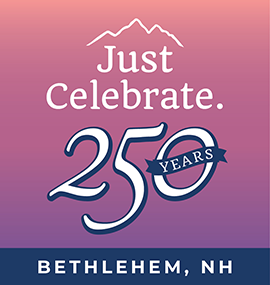04/19/2022 TSC Minutes
TOWN OF BETHLEHEM
2155 Main Street
Bethlehem, NH 03574
April 19, 2022 Minutes of Bethlehem Transfer Station Committee
Members present: Nancy Strand, Barry Zitser, Chris Jensen, Betsey Philips, Katherine Darges, Margaret Gale, and Julie Seeley
Members of the public present through video: Sara Doucette, Jon Swan, Allegra Wright, a person identified as “Bruce”, and someone from a site entitled “Your Momma I Phone”.
Guest Speaker – Steven Bean, Littleton Transfer Station (TS) Manager
During his presentation, Mr. Bean noted that Mr. Patnoe, his predecessor who is now manager of the Lancaster TS, is no longer a representative on the Pemi-Baker Solid Waste District (Pemi-Baker), since Lancaster is outside of Pemi-Baker’s jurisdiction. However, Mr. Bean is a representative.
As requested, Mr. Bean has reviewed the TS needs analysis worksheet, prepared by Nancy. In his review he stated that:
1) Single stream recycling is very expensive. He recommended that we should pay attention to raising revenues from source separated recyclables. Mr. Bean spoke very highly of the Northeast Resource Recovery Association (NRRA) for providing services that connect his TS with purchasers of recyclables that provide a good source of revenue. Later during the meeting, Chris noted that Bethlehem recently renewed its membership in NRRA.
2) For demolition construction and debris (C&D), he noted that it is arguable whether a compactor would be cost efficient for Bethlehem, since it only reduces volume by a relatively small amount. Littleton is expecting a substantial increase in C&D when the landfill closes. The Littleton TS has fees for C&D and other special items, which are designed to cover costs, but the TS doesn’t have an outdoor scale. Currently, about a third of Littleton’s waste is C&D. Only about 2% of what he sees is recyclable.
3) Concerning glass, Lancaster has a crusher to reduce volume. You can have someone come in and crush it, in lieu of buying a crusher. Littleton is a regional collector of glass for NRRA. Tri-town and Whitefield bring their glass to Littleton. The charge per ton is $40. NRRA arranges for the glass to be picked up, but Littleton doesn’t receive any revenue from such glass.
- A TS definitely needs to collect electronics or they may end up littering the environment. Littleton has a scale for this purpose, and charges 25 cents per pound.
- The Littleton TS uses Gaylord containers to store many items, but these containers have to be kept in a storage building to keep dry.
- The Littleton TS charges $4 per tire. The tires must be kept dry. A tire shredder would be too expensive. Littleton does brokering with NRRA for tires. When there is a sufficient number of tires they call NRRA, and NRRA sends someone to pick the tires up.
- A sand shed is probably unnecessary. Many TSs are near town garages that have outdoor piles of sand for their residents.
- The Littleton TS does not do composting, because of the high cost of having a building to protect it from wildlife. Such a building would have to be a separate facility from buildings which store other items.
- A TS needs an attendant station with heat and a toilet. It’s easier for this station to be part of a bigger building.
- Scrap metal is the easiest way to make money, but needs storage space. The Littleton TS received $25,000 last year for scrap metal, but unlike many of its recyclables, does not utilize NRRA for this purpose.
- For textiles and clothing, we should just continue what we are doing now. The new company that both Littleton and Bethlehem has been using is working out great
- For plastics, mixed paper and cardboard, you need separation, baling, a skid steer to move these items, and a trailer to store them.
- While you can mix paper and cardboard, they are worth more if separated.
- Mixing plastics is very convenient, but worth less than separation. However, mixing still produces revenues, perhaps getting $1,500 per truckload.
- Household batteries. Alkaline batteries no longer have mercury. The Littleton TS takes in lithium batteries for free.
- He can’t imagine us not using a pay-as-you-throw (PAYT) system for regular household waste. Littleton’s PAYT bags cover their costs (tipping fees and transportation), and then somewhat.
- Yard waste is pretty easy. It will just decompose, and only requires space.
- Meadowstone Farm picks up their brush, or others come to use it for landscaping.
- Appliances can be put in the metal pile, but for gas stoves you have to be careful about mercury. The Littleton TS charges $5 for most appliances, but $15 for refrigerators, since they contain Freon.
- Waste oil. The Littleton TS collects it because they use it in a furnace that heats the building. If you don’t have a furnace, you better have a place to store it safely and a place to take it. Maybe an automotive company will take it. But you can’t take oil from an unknown source.
- Rugs and furniture are considered debris. The Littleton TS has a pre-crusher to reduce its volume
- Automotive batteries are collected and brought to Napa, raising some revenue. However, batteries need to be stored.
- Adequate storage space is perhaps the most important item for a TS. He suggested that perhaps one big building for all needs (attendant, recyclables, storage, etc.) might be preferable to several smaller buildings.
- The Littleton TS gets rid of fluorescent lights for free with Pemi-Baker (but you must pay dues to join Pemi-Baker). The Littleton TS does have a small charge per foot. Fluorscent lights must be stored separately and you must take care to keep them from breaking.
- The Littleton TS charges $5 for propane tanks.
- A truck scale would cost more than $100,000, plus additional maintenance costs.
- The Littleton TS does have two small scales indoors, for appliances, electronics, etc.
- The Littleton TS gives the Town of Monroe Gaylord containers for the separation of recyclables, such as cardboard, paper, and mixed plastic 1 through 7. Monroe delivers the recyclables to Littleton for free and Littleton gets revenue from selling it.
- The Littleton TS has 5 people on staff, and two industrial-sized balers.
- The Littleton TS has been burning brush. They are now looking into a chipper.
- The Littleton TS is on a site that is 3 to 5 acres.
Barry asked Mr. Bean whether Bethlehem could bring containers to the Littleton TS if our Town had some collection, separate from the NCES TS, and he said he wouldn’t rule it out.
Finally, Mr. Bean indicated that the Lancaster TS would be a good TS to visit, noting that Lancaster gets a lot of C&D.
There was no independent public impact
The new Just Be Greener edition, concerning single-stream recycling versus source separation, was unanimously approved. Barry noted that he tried to obtain information from the Casella organization about their single stream rejection rates, but was unsuccessful.
It was decided that the next edition of Just Be Greener address composting.
In an update on NRRA’s Recycle Right Campaign, Margaret noted that NRRA just commenced the Campaign the previous day, and that there was not much information yet on its website. There was a discussion on possibly getting in touch with the Colonial theatre for their consideration of possibly showing some of NRRA’s recycling shorts with their regular movies, if such shorts were suitable and technically capable of being shown in a theatre.
Nancy noted that New Hampshire the Beautiful has some free container stands where you can put in contractor bags. There was a discussion on whether these bags could be used for recyclables for the Town pool and during Gazebo concerts. Concern was expressed about people throwing garbage into such bags. Nancy will check to see whether free container stands are still available.
Chris and Barry have been in touch with the North Country Council (NCC) concerning the availability of grants for technical assessment of the Route 116 TS site. NCC is unaware of any potential grants for such technical assessment.The application process for educational grants under the bipartisan infrastructure act has not yet been prepared.
There was a discussion on the technical services provided by the Center for Eco Technology (CET). Nancy noted that follow-up evaluation is an important component of such services, and she contacted the Bethlehem Elementary School (BES) to get some feedback. She was told that CET came to the school and walked around. CET followed up with some emails asking for further information. BES can’t say if made a difference. Barry hasn’t gotten in touch yet with Rek Lis to see if they benefitted from CET’s free service. Currently, Meadowstone Farm takes about 100 pounds of food waste per week from Rek Lis.
Nancy has been in contact with the Conservation Commission (CC) about putting in some entries to their webpage, such as anti-littering and adopt-a-street-campaigns. Nancy will let the CC know that members of our TS Committee are on board.
Margaret updated us on the roadside clean-up, which is scheduled for May 14th, with a rain date of May 21st.
Approval of the March 1, 2022 minutes of the previous meeting was unanimous.
There was a discussion about the Committee visiting the Route 116 site. It was decided that the next meeting should be held on May 17th, and Chris will see whether we could visit the site in the late afternoon prior to the meeting.
There was a discussion about a swap shop, separate from the NCES swap shop, and a Facebook swap shop. Nancy or Julie might contact Christine Zontini, who is opening up a new ice cream shop on Route 302 in the Village Center, about the possibility of using her large basement for a possible swap shop. Chris noted that this subject is not a formal function of either the TS Committee or the Town. However, he noted that it would be okay if Nancy and Julie noted that they are members of the TS Committee on their Facebook site.
The meeting adjourned after slightly more than two hours from commencing at 6:30 PM..

